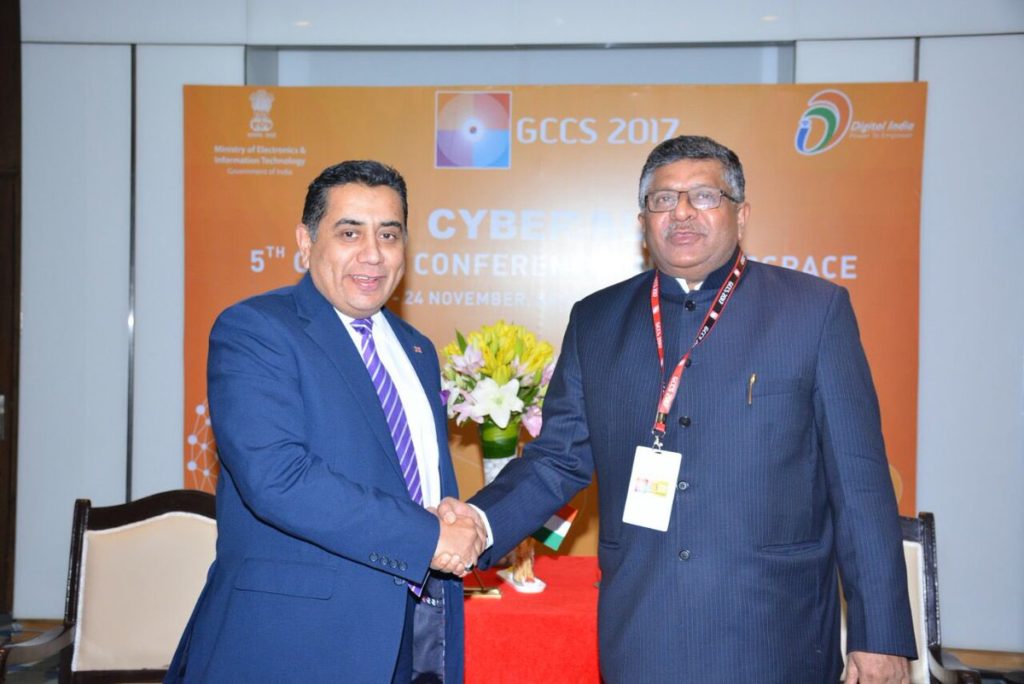With talk about India being asked to play a more active role in the Commonwealth, a British Minister has said that New Delhi has a “pivotal role” to play in the 52-nation bloc of countries that were once part of the British Empire.
“India is not just the largest democracy in the world, it is a also a country with great history within the context of the Commonwealth,” Lord Tariq Ahmad, Britain’s Minister of State for the Commonwealth and the United Nations, told IANS in an interview in New Delhi.
“We were delighted by the royal visit here recently… as well as the warmth of the bilateral relationship between the United Kingdom and India,” he said.
“From the comments of Prince Charles, it was very clear about the importance we lay on the Commonwealth and equally that India lays towards the Commonwealth.”
Ahmad, who is of Indian origin, said that his wife is of Pakistani heritage and their children are “products of the Commonwealth.”
“That’s what the Commonwealth brings. This incredible tapestry, this incredible diversity of nations and people,” he said.
“I think India has a rich diversity and so, as the biggest nation of the Commonwealth in terms of people, as a nation which is clearly emerging as a great global player, it has a pivotal role to play in the Commonwealth.”
Ahmad, who was in India to attend the Fifth Global Conference on Cyber Space, said that London and New Delhi were holding constructive discussions “to see how we can also demonstrably show India playing a much more significant role within the context of the Commonwealth.”
“We are seeing a new global India which is opening up to the world which presents huge opportunities,” he said.
“But let’s also recognize that India is a key player in the family that is the Commonwealth and in that we are also partners. So, we hope that with India’s growing role within the Commonwealth, there will equally be great opportunities for other countries within the context of the Commonwealth as well.”
With the world getting increasing multi-polar in the post-Cold War era, this grouping of former British territories has been losing relevance over the years.
While Prime Minister Narendra Modi gave the 2015 Commonwealth Heads of Government Meeting (CHOGM) in Malta a miss, then Prime Minister Manmohan Singh did not attend the 2011 meeting in Australia and the 2013 edition in Sri Lanka.
Now, however, attempts are being made to give a fresh lease of life to the bloc with expectations of India playing a more active role.
With next year’s CHOGM to be hosted by Britain, Ahmad said the event this time would be attended by all heads of government.
Stating that next year’s summit is really focused on opening up, he added that the leaders’ retreat will be a very important part of it.
According to the British minister, there are four key key themes in the run-up to next year’s summit — security, sustainability, prosperity and trade, and fairness.
While the first theme is aimed at ensuring a secure Commonwealth, the theme of sustainability looks at some of the challenges of climate change, particularly for island states.
“Recently, we have seen the challenges of climate change and the devastation things like hurricanes can pose for small islands,” Ahmad said.
“How can we build resilience within that second theme? How can we build the capabilities of small island states in dealing with natural disasters? How can we build sustainable fishing industries?”
Ahmad said that the third element of prosperity and trade is aimed at opening up trade between the relevant nations of the Commonwealth.
“How we can do not just things collectively as the Commonwealth 52 but bilaterally as the UK and India are doing and at other times groups moving together,” he stated.
As for the fourth theme of fairness, the British Minister said: “Whether you are a man or a woman, whether you are young or old, the Commonwealth is for everyone and we need to ensure fairness.”
Stating that the key word to strengthen the 52-nation bloc is partnership, he said that sometimes the most practical workable solution may be found in one part of the Commonwealth. — (IANS)
